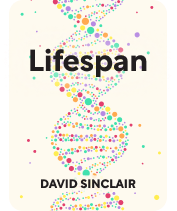
This article is an excerpt from the Shortform book guide to "Lifespan" by David Sinclair. Shortform has the world's best summaries and analyses of books you should be reading.
Like this article? Sign up for a free trial here .
Is aging an incurable disease? Or can aging be treated?
Scientists are moving to the idea that aging is not, in fact, an inevitable doom that we’ve so far believed it to be. Rather, aging is a treatable disease. Biologist David Sinclair suggests a number of different ways to treat aging, either by delaying the symptoms or (in some cases) actually reversing the damage.
Here’s how to reverse aging, according to David Sinclair.
Aging Can Be Treated and Reversed
According to biologist David Sinclair, aging is a disease that can be treated, and we are slowly but surely getting there. In his book Lifespan, he discusses how to reverse aging and extend both lifespan and healthspan.
Take Advantage of Hormesis
Sinclair says that we can prolong our own life and health through hormesis: A phenomenon by which our bodies become stronger in response to stressors like hunger, extreme temperatures, and physical damage. Hormesis activates numerous survival mechanisms, such as conserving resources and repairing cellular damage. Sinclair believes we can take advantage of hormesis not just to extend our lives, but to improve our quality of life as well.
We already employ hormesis in several ways, such as dieting, exercising, and sitting in saunas. However, Sinclair says that recent and upcoming scientific advancements will allow us to control these processes more effectively and efficiently—for example, we might be able to use an injection to strengthen our muscles without the need for exercise.
(Shortform note: In Antifragile, Nassim Nicholas Taleb tells us that the toxicologist Hugo Schulz first discovered hormesis when he noted that small doses of particular toxins would actually cause yeast cells to grow and reproduce more quickly—though higher doses would kill the yeast as expected. From this, we can see that hormesis has limits; the key is to use mild stressors, like hunger, instead of severe stressors like starvation.)
Sinclair recommends intermittent fasting (IF) as a way to trigger your body’s stress responses without causing malnutrition. He suggests several different variations of IF, saying that it’s currently unclear which method is best, but all are beneficial:
- Set aside 8 hours a day where you’re allowed to eat, and fast the rest of the time (the 16:8 method).
- Reduce your calorie intake by 75% for 2 days a week (the 5:2 method).
- Eat no food for a week once per quarter.
Sinclair also says that a vegetarian diet can activate hormesis. The relatively low levels of certain proteins (as compared with meat) can trigger our survival mechanisms in the same way that calorie restriction does.
(Shortform note: In addition to triggering hormesis, vegetarian diets tend to be relatively low in fat, sodium, sugar, and cholesterol compared to meat-heavy diets. Scientists believe that a vegetarian diet reduces the chance of heart disease, cancer, and diabetes, lowers blood pressure, and strengthens bones.)
Finally, Sinclair says that exercise (which, by definition, puts stress on our bodies) can greatly extend our lifespans. For example, researchers have found that exercise lengthens and protects telomeres. Telomeres are small complexes of DNA and proteins at the ends of our chromosomes that get shorter each time a cell divides. When the telomere runs out, the cell stops dividing—leading to many of the problems of old age. Therefore, lengthening telomeres can literally keep our bodies younger for longer.
Sinclair adds that exercising in low temperatures appears to boost the youthening effects of exercise, most likely due to combining the stress of working out with the stress of being exposed to cold.
(Shortform note: It doesn’t take a lot of exercise to significantly improve your health. Researchers found that 150 minutes (two and a half hours) of moderate exercise each week increased life expectancy by about seven years, and that active 70-year-olds had hearts, lungs, and muscles that were as strong as some 40-year-olds’.)
Killing Senescent Cells to Preserve Other Cells
As we get older, our cells start to shut down, which causes a lot of the deterioration that we experience as we age. Sinclair believes that destroying those cells before they cause too much damage can significantly extend both life and health.
Cells that are no longer able to divide, or that suffer genetic or epigenetic damage too severe to repair, can enter senescence: They don’t function anymore, but they also don’t die when they should (leading some researchers to refer to them as “zombie cells”). Furthermore, senescent cells can cause other cells to enter senescence, so the process only accelerates once it’s begun.
Sinclair says that senescent cells send out chemicals that cause inflammation in surrounding tissue, which is associated with symptoms of aging. Therefore, it seems likely that senescent cells are responsible for many of the negative effects of old age.
Researchers found that destroying senescent cells in mice extended their remaining lifespans by a third or more and reversed many of the effects of aging; in theory, the same principle should apply to humans. To that end, researchers began testing senolytics (“senescence destroyers”) on people in 2018, though Sinclair says it could be years before we have any conclusive results about their effectiveness and safety for human patients.
Protecting Health With Technology
While the focus of Sinclair’s work is undoing the damage caused by aging, he also believes that technology will extend our years of health by letting us recognize and treat diseases before the symptoms even begin. Improved DNA sequencing techniques will allow us to find genetic markers and risk factors for numerous conditions, while biometric devices (like smartwatches) can track our vital signs and warn us of potential problems. Furthermore, Sinclair believes that having access to this detailed information will allow experts to design diets, exercise programs, and treatment regimens that are custom-tailored to your genetics and lifestyle.
(Shortform note: Sinclair’s vision of using technology to prevent disease isn’t hypothetical; geneticists can already use DNA analysis to determine if someone’s at risk for cancer, Parkinson’s, and numerous other diseases. Also, when Sinclair says biometrics, he just means taking information about your vital signs like heart rate and blood pressure. It’s the same data that doctors collect in the medical office, so it’s not unreasonable to imagine relying on wearable tech like smartwatches instead of visiting a doctor in person.)
Of course, sharing such intimate personal data comes with enormous privacy and security concerns. Sinclair says we’ll each have to decide how much we’re comfortable with sharing, but he personally believes it’s more than worth the risk—much like how our cell phones collect tons of data about us, but we still use them. In fact, Sinclair shares that he uses biometric devices himself, and that the insight he gains from them is worth the potential risks.
(Shortform note: While Sinclair is talking about using biometrics to track our vitals, biometric technology—including tech that’s already widely used—encompasses a lot more than heart rate and blood pressure. Biometric security devices can use everything from your fingerprints to the sound of your voice to determine that you are who you say you are. The main security risk with biometric data is that it can’t be altered; if a hacker got your password you could simply change it, but if a criminal had your fingerprint, there would be no way to lock him out of the system while still allowing yourself to access it.)
On a less personal level, Sinclair says that improved technology such as new vaccines and 3D-printed organs—which don’t force you to wait and hope that a match becomes available—will enable us to avoid diseases and recover from grievous injuries or surgeries more easily.
(Shortform note: Scientists are currently working on creating functional organs in a lab using 3D-printing technology, but the process is still in its infancy. Experts say that we might be as much as 30 years away from the sort of organs-on-demand that Sinclair envisions.)
Clearing Epigenetic “Noise” With Sirtuins
When it comes to repairing epigenetic damage, Sinclair’s work focuses on sirtuins—enzymes that regulate the epigenome. He believes he can reverse many of the effects of aging by bolstering our sirtuins because they’re involved in everything from repairing DNA to suppressing inflammation—all of which they accomplish by activating or deactivating certain genes in response to certain stressors.
We’ve already discussed Sinclair’s theory that DNA damage doesn’t directly cause aging. Now he adds that sirtuins have to move away from their usual functions in order to repair DNA damage. As we age and start suffering from more and more problems, this leads to two issues: First, the sirtuins aren’t able to get back to their positions before they have to rush out to repair more damage. Second, sometimes they don’t return to the correct positions. These two things lead to epigenetic chaos—genes that should be active are deactivated, and vice versa.
Therefore, manipulating sirtuins to work more effectively—which scientists have done in mice with drugs like resveratrol—helps combat the effects of aging and extends life. The next step, Sinclair says, is to find drugs that cause the same effects in humans.
(Shortform note: Sirtuins are a relatively new area of study, and while initial research results look promising, there isn’t yet much evidence that we can effectively manipulate them in humans or that we’d get the desired results by doing so. A scientific review from 2020 summed up the results of many different studies on sirtuins in organisms ranging from yeasts to primates. In short, it says that sirtuins are “promising targets” for therapies to treat everything from age-related diseases to cancer, but there are still few (if any) studies using human subjects.)
Turning Back the Clock With Yamanaka Factors
Sinclair believes that the true cure for aging may be a set of four genes, called Yamanaka factors, that reverse aging in cells—not just the effects of aging, but aging itself. Shinya Yamanaka, the stem cell researcher who discovered these genes’ potential, showed that they could cause adult cells in a petri dish to revert to immature stem cells. Those stem cells could then re-mature into young, healthy cells of any type.
Sinclair believes that it will someday be possible to use Yamanaka factors, along with other treatments, to completely undo epigenetic damage and even revert senescent cells into healthy ones, thereby resetting people’s biological clocks. He even says it might become possible within our lifetimes, though he admits that’s an optimistic prediction.
The author acknowledges that this sort of genetic de-aging therapy is a work in progress: He suspects that it’ll take at least another decade to develop methods that are both safe and effective for humans. However, Sinclair’s own laboratory has made great strides already, and he truly believes that this procedure (or one like it) will someday keep us young and healthy indefinitely.
(Shortform note: Chemist and biologist Joanna Wysocka showed that a particular group of embryonic cells—called the neural crest—naturally use Yamanaka factors to turn back into stem cells. These cells of the neural crest, which were at one point locked into becoming skin, were then able to turn into bone or muscle tissue instead. This suggests that, not only are the Yamanaka factors theoretically effective on living humans, but are in fact already a part of our development.)

———End of Preview———
Like what you just read? Read the rest of the world's best book summary and analysis of David Sinclair's "Lifespan" at Shortform .
Here's what you'll find in our full Lifespan summary :
- Why biologist and geneticist David Sinclair believes old age is a curable disease
- The potential problems of a world where people never die
- How the elderly stifle the economy






